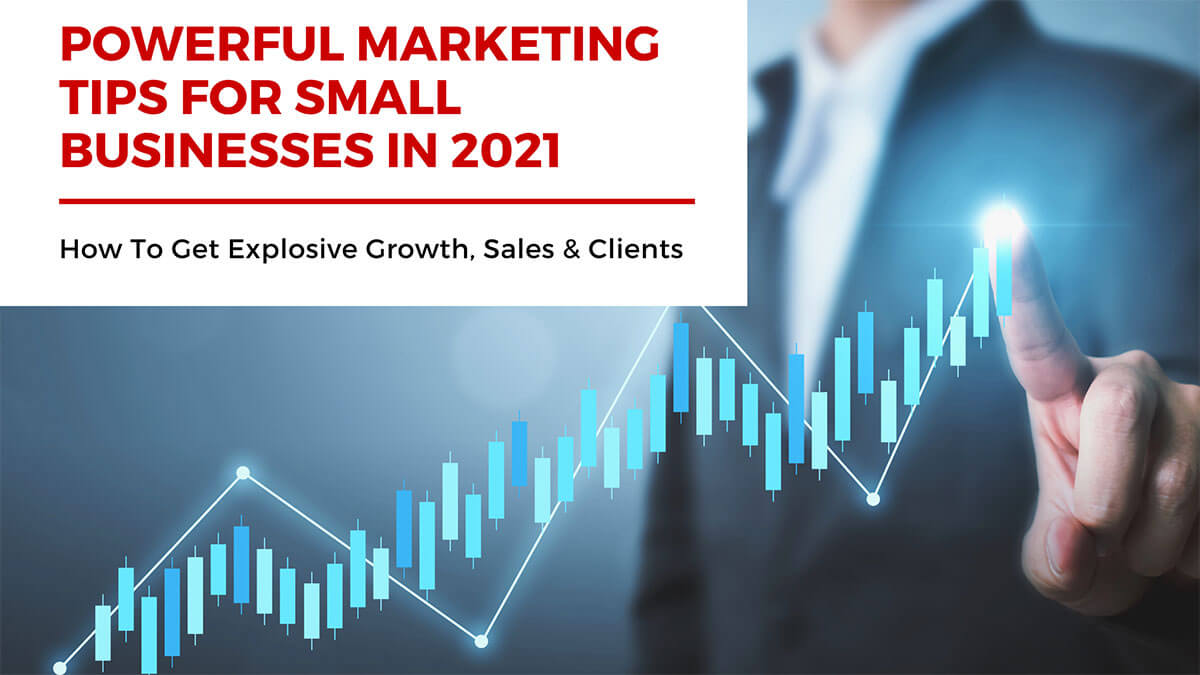Introduction – Powerful Marketing Tips For Small Businesses In 2021: How To Get Explosive Growth
Marketing can be a difficult task for small businesses. There are many marketing channels to choose from, and it can be tough to decide which one will work best for your business.
I want to talk about the topic of small business marketing in this blog post and how a small business owner can get more clients, sales, and grow.
There are many advantages and disadvantages to online vs offline marketing for small businesses.
I want to look at the ways that startups, small businesses and entrepreneurs can market themselves in order to get more clients, sales, and grow.
In this blog post, we will take a look at each way to market a small business or startup as well as tips on getting started with whichever you choose!
Download Our Free eBook
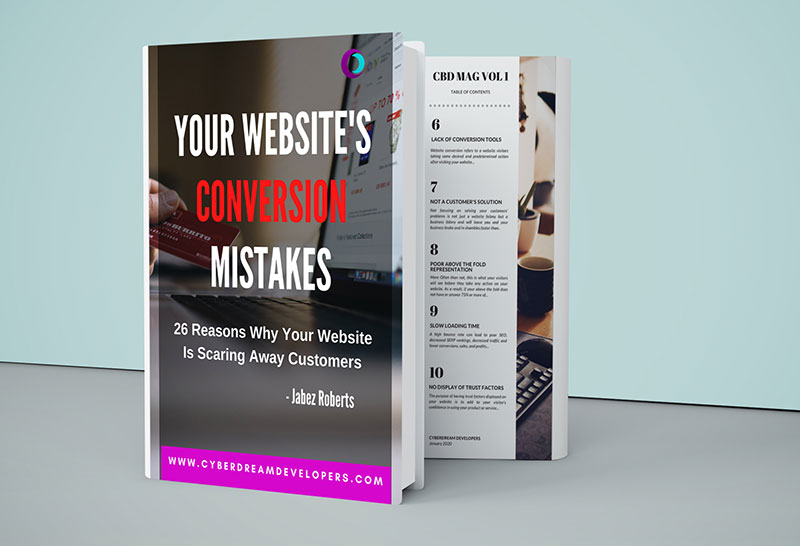
Why Marketing Is Important For Small Businesses
Marketing is important for small businesses and startups because it can be the difference between success and failure.
The marketing methods a small business or startup chooses to use can make or break them, so they need to choose wisely.
There are three major types of marketing: online marketing, offline marketing, and content marketing that will be discussed in this blog post.
We would also like to help small business owners and entrepreneurs decide which type of marketing is best for their small business.
Different types of businesses will cater to different types of clients and will have different budget constraints as well as objectives.
These can all play a role in the type of marketing that is best for your business.
How Do I Market My Small Business?
One of the most important questions a small business owner will ever ask is “How do I market my small business or startup to get more leads, clients, sales, and growth?”
We are going to try our best to fully answer that question by the end of this article.
One of the main decisions small businesses and startups need to make is whether they should run marketing campaigns online or offline.
There are pros and cons to each, but it really depends on what your goals for the business are.
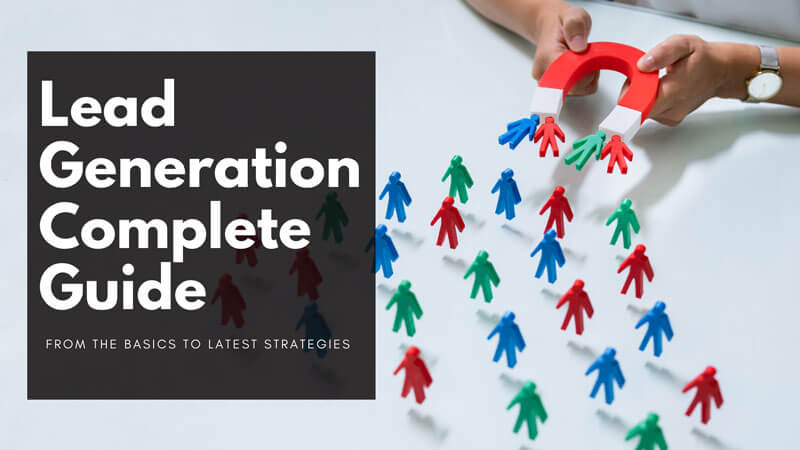
Online Marketing
The internet allows you to reach a large audience with little start-up costs.
You can create an account on social media websites like Facebook or Twitter and post links back to content that will help customers find out more about your company as well as products they might be interested in buying from you.
This type of marketing also requires much less physical presence than offline marketing does which means there’s less demand for advertising space (online) – so this makes them significantly cheaper than offline places such as TV ads or billboards.
You may also find that online marketing is easier and cheaper to get started.
You can download our eBook below for free to learn why your website is scaring away your customers. It helps you understand why your website isn’t generating more leads and revenues for your business plus actionable tips to help solve this problem.

Offline Marketing
This type of marketing is a little riskier for small businesses because it’s more expensive to produce, but the advantage is that you can reach people who are in your area.
Think about printing flyers and posting them on local bulletin boards or handing out business cards at events like trade shows.
You could also try advertising with radio ads or posters around town as well as buying ad space in newspapers (it may be cheaper).
Online Vs Offline Marketing
These two types of marketing both have their own advantages and disadvantages – so I want to talk quickly about which one might work better based on what the goals for your company are.
If you’re looking to target specific customers within a certain geographical region then offline marketing would probably be best suited for this goal.
Online marketing might be right for you if you’re looking to have a larger reach and you want potential customers that may not be in your area.
One of the main decisions small businesses and startups need to make is whether they should run marketing campaigns online or offline.
There are pros and cons to each, but it really depends on what your goals for the business are.
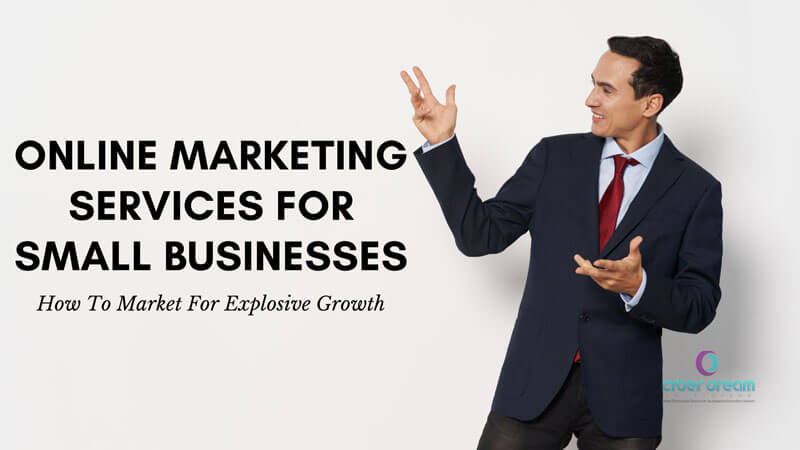
What’s the best way for small business or startup to do marketing?
I think it really depends on what the goals are, whether or not they’ve got a budget, where their target audience is located, etc.
It seems like there isn’t one definitive answer but rather some different strategies that might work better depending on these factors so I’ll talk about a few of those here in this article.
One of the most important things to remember when marketing your small business or startup is that everyone has a different opinion on what works.
You will find many articles and blog posts about how effective SEO keywords are or whether online marketing or offline marketing better for small businesses, but you can’t be sure which one it true until you try it out yourself!
For some people, advertising through social media platforms like Facebook worked while others found success with using Google Ads and YouTube Advertising.
The best thing to do depends on your target audience as well so make sure to take that into account before making any decisions because we promise there’s never just one way to market a small business in order for them to grow successfully!
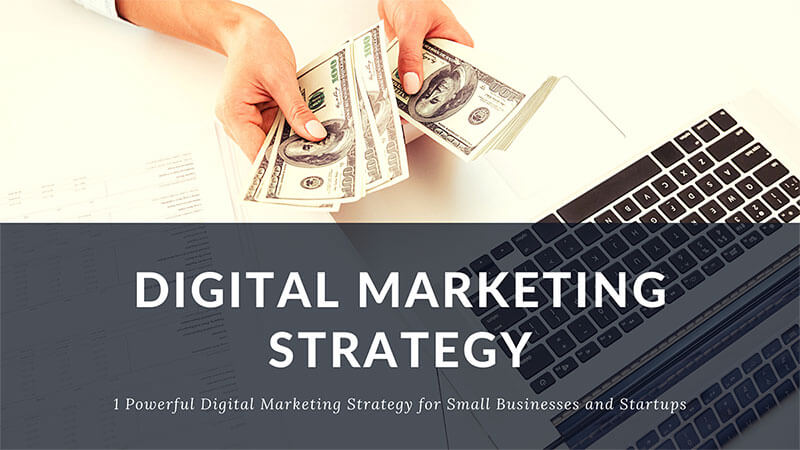
How do I decide how to market my small business or startup?
These are some of the questions you need to ask before you can decide how is the best way to market your small business or startup:
- Who is my ideal client?
- Where does my ideal client hang out online?
- Where is my ideal client offline?
- Is it cheaper to reach them online or offline?
- Is it easier to reach them online or offline?
- Which method can I start right now?
- What problems are my ideal clients facing that I can solve?
- What interests does my ideal client have? What do they care about?
- What fears and worries do my ideal client have?
- What is your ideal client’s demographic?
- Where does your ideal client hang out online, what social media platforms do they use the most and how much time do they spend on them each day?
- Where is your target audience offline in their daily lives: at work, home, school, etc.?
- Am I looking to make money now or later?
- Am I more interested in building a solid brand to last for years or do I want the quick buck?
- How much money do I have to spend on marketing?
- Is my ideal client in my local area or are they international?
Answering these questions will help you decide which marketing strategy to start with first.
For example, if you want to reach children then it might be a good idea for you set up an Instagram account or create content for YouTube and Facebook that appeals directly to this specific group of people.
If you are trying to market a new product that employees can take into the office every day then maybe LinkedIn may be more appropriate.
If you are looking to kickstart your new business by getting some quick sales then you might need to hire a Pay-Per-Click specialist and run ads to your website to generate sales.
On the other hand, if you are looking to build a brand then Search Engine Optimization, Email Marketing, and a strong social media presence with platforms like Instagram and Twitter.
You may also need to focus strictly on online marketing for the simple fact that your budget and time constraints to make a return on your initial investment is so limited.
The idea is that the answer to the question of “How do I market my small business?” and “Where do I market my small business?” can only come to you after you know the answer to those 16 questions mentioned above.
Online marketing has been the most effective at generating sales for small businesses, but offline marketing is still an option.
I recommend you look over these 16 questions and make a decision on where to start marketing your business while keeping in mind what type of return you want on investment.
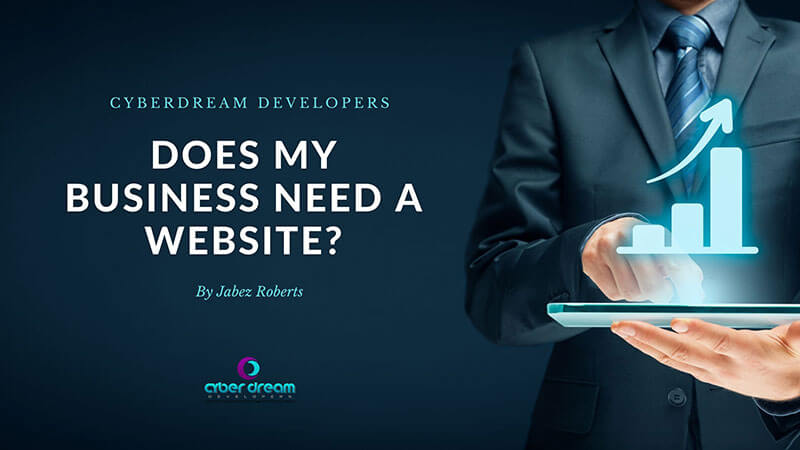
Is Online Or Offline Marketing Better For Small Businesses & Startups?
You might be wondering whether it’s better for your small business to go online or offline when trying to market, and the answer is that they both have their pros and cons so there isn’t one right choice.
Online marketing is a great way to reach a larger audience and connect with people who don’t know you.
There are many reasons to use online marketing for your small business or startup.
Some of these reasons are the ease of reaching more people, the cost-effectiveness, and you can measure your marketing efforts.
Starting online marketing can be as easy as setting up a social media account and creating posts around your brand or product.
There are pros and cons to using online marketing for small businesses.
Online marketing is a good way for people who live in remote areas or places where it’s difficult to get out into the community, but there are also some disadvantages such as high costs when you need custom graphics designed and if your website goes down then all of your marketing efforts can be lost.
Offline marketing doesn’t have those problems, because they’re not reliant on internet connections which means that this type of business will always be available no matter what happens with technology.
However offline advertising often comes at a higher price tag than online ads so deciding which one suits you best depends largely on how much money you want to spend each month.
Offline marketing is a great way to have personal interactions with customers that are interested in what you or your small business offer.
Another big advantage of going offline as opposed to online is that in-person interactions are much more likely between clients and potential customers; this creates an opportunity for your company to cultivate relationships with them over time.
There’s also less competition online where everyone has an eCommerce site so having offline advertising might be necessary.
Some reasons not to use offline marketing for small jobs include limited reach (you can’t post on social media everywhere), lack of connection with customers who know about your company, and time constraints – it takes time to plan meetings and find new prospects).
In contrast, the disadvantage of going offline instead of online is that sometimes advertising costs can get expensive no matter what kind you’re using (whether print ads in magazines or billboards) so it may not be financially feasible at this time.
In general, it is easier to do local advertising with an offline marketing strategy; however, if you want a global reach or your target market lives outside of the region where you have physical access then going online may be better.
Both methods can work well depending on what type of business you are running but some small businesses might find that they will need to use one more than the other based on their location.
Another thing to consider when using either method is how much competition there is in your industry which could make certain strategies not as effective as others.
It’s important before beginning any marketing campaign that you think about who your audience is and how best to get them interested in your offering.
It is always best to meet your audience where they are.
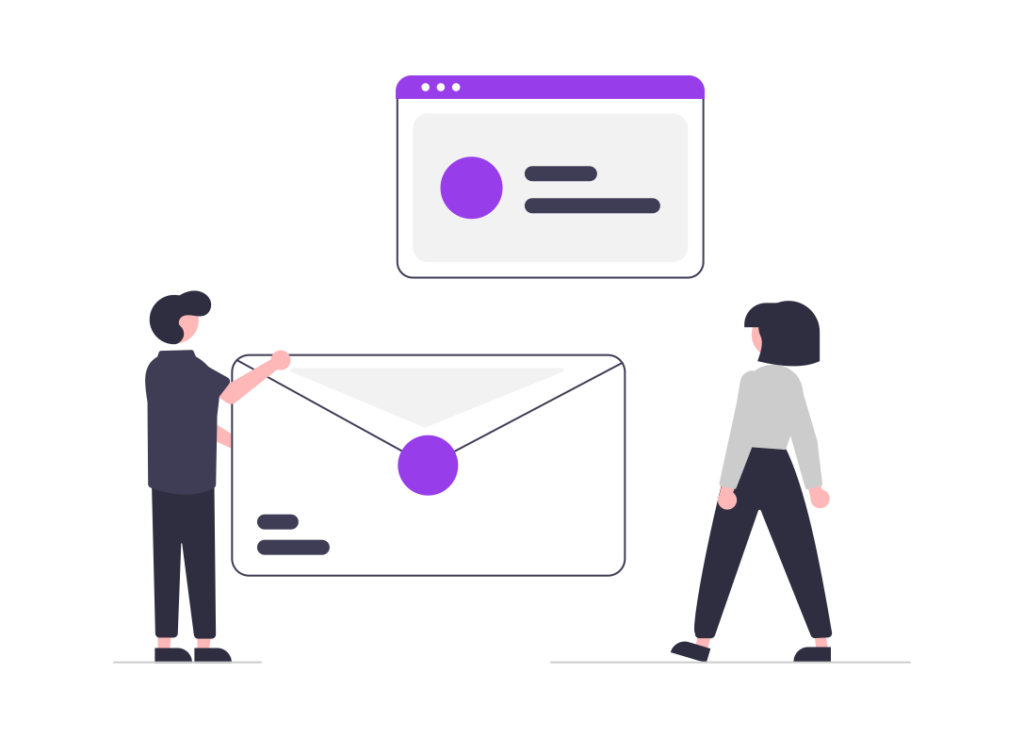
Advantages Of Offline Marketing For Small Businesses & Startups
We have already discussed many of the advantages and disadvantages of using both online and offline marketing for your business above but we are going to dive in a bit at this point ad list the advantages of offline marketing for small businesses and startups.
Some of the advantages of doing offline marketing for small business include:
- It is one of the easiest ways to appeal to a local market
- Offline marketing is more affordable than online marketing
- There are no limits to the number of people you can reach via offline marketing
- It’s much easier for a small business owner or startup founder to do their own offline marketing since they know what interests them best and how to make an engaging ad.
- It can be as simple and low-cost as putting fliers of your new service or product around your neighborhood
- Offline marketing can be more personal than online marketing because you are talking to people in person
- It’s easier for small business owners and startup founders to respond quickly when customers have questions about their products or services.
- It is a great way for small businesses or startups to get feedback from clients, friends, family members on social media pages
- It may also be easier to communicate with your ideal client as a beginner marketer with no experience as you are normally geographically close to them and are familiar with their culture, jargon, and tendencies
- It may be easier to build a strong brand with a smaller, more defined local audience than communicating to a much larger international audience.
If you plan to take an offline approach with your marketing campaign, there are a few additional factors that need to be considered one of which is placement.
Whether you’re using billboards, flyers, banners, posters on cars, or other means of offline marketing. Find the most effective placement for your ads so the people who would benefit from seeing them have access.
Offline marketing is the best option for small businesses that want to get their name out there and make a personal connection with potential customers.
There are also many more offline marketing options than online, which allows business owners to create tailored campaigns that meet their needs.
Offline marketing does not always have to cost a fortune and can be inexpensive or free if done correctly like handing out flyers in your neighborhood or cold-calling prospects that may be a good fit for your business.
This may be more time-consuming than online ads, however.

Disadvantages Of Offline Marketing For Small Businesses
Offline marketing as an option gives a small business the opportunity to talk face to face with their potential customer.
With offline marketing, you can get your hands on products and showcase them in person, which is something that online marketers don’t have access to do.
However, this type of marketing has its disadvantages.
One thing about offline marketing is that it’s difficult for customers to find out who we are unless they’re actually looking for us or specifically know our name beforehand.
It’s also more time-consuming than most other forms of advertising because you need some physical contact with people one at a time.
If you’re marketing in a busy area, then this can be difficult to do.
Finally, offline marketing is only available when your customer is physically near you and it’s not always easy for them to take the time out of their day or drive that far just because they saw an advertisement online.
Despite these disadvantages, we don’t think that offline marketing is useless and not feasible. To help you with using offline marketing for your small business or startup we would like to give you these few tips to improve your offline marketing:
- In order to get customers over the phone or at your business location, make sure you have a call-back number so people will know how to contact us if they want more information about our products and services after speaking with us.
Make sure we keep these numbers up-to-date as well! - Be very clear on what type of product and service are being offered
- Make sure that your marketing materials are attractive and catchy – this will help you to stand out among the other products in the area.
- Include a call to action such as “come visit us” or “call now.” People need something specific they can do, otherwise, they’re going to forget about it after seeing it once.
- Give special deals for people who come into the store. This is an excellent way to motivate them from online marketing on social media sites by telling them what’s waiting inside for them when they show up.”
- Ensure you have the warmest and best in-person customer service possible
- Make it easy to find your location and contact you
- Don’t neglect local agencies like directories, listing companies, etc.
- Attend local events in your niche or industry to connect with like-minded business owners and even prospective clients This is how Gym Shark grew to a multibillion-dollar company. View that story below.
Offline Marketing Strategies For Small Businesses
Offline marketing is the most common way for small businesses to market themselves.
There are many different ways a business can do offline marketing and all of them have their own advantages and disadvantages.
- Direct Mail – One method used by marketers, which has been around since the 1800s when it was first introduced in France as “le facteur rural” (the rural postman) is direct mail marketing.
Direct Mail Marketing is where you send promotional materials through postal services directly to potential customers’ homes.
The downside with this form of marketing is that only about one out of every 600 pieces get opened or read before being thrown away or recycled without any action taken on what’s inside. - Cold Calling – Cold calling is a marketing technique where a marketer calls up potential clients and tries to sell them on their product or service.
The upside of this form of marketing is that it’s cheap but the downside is that it can be very intrusive because many people don’t enjoy being cold-called. - Print Advertising – Print advertising includes advertisements in newspapers, magazines, flyers, billboards, etc.
This type of marketing has been around since before recorded history but there are downsides to print media as well.
For one thing, you have to pay for the ad space which ends up costing more than just buying TV ads like with commercials and another problem with print ads is they seldom get read anymore since we’re all plugged into our phones these days reading Facebook posts or scrolling through Instagram feeds. - Cold Emails – Cold emails, like cold calling, is when a marketer reaches out to someone via email they don’t know in the hope of getting them as a client.
The advantage of cold emails is that you can target your marketing. Cold emailing is very cheap to do and the upside is that you can get in touch with people who have opted-in by filling out a form on your website or signing up for an email marketing list.
The downside of cold emails is they’re still hard to read (no one likes getting spam) and many people don’t want their inboxes cluttered. - Outdoor Boards: Outdoor advertising has been around since before recorded history and there are many types, styles, shapes available for purchase with prices ranging from $0 – $3000
- TV Ads: TV ads are probably the most expensive way to market a small business because you have to pay per commercial time slot (these slots range in price depending on which station or network you’re buying ad space). It is also very popular among larger companies. The major drawbacks are that it might be out of the budget of a small business and the results are hard to track and analyze.
- Door Hangers: A door hanger campaign is a physical marketing tool that can be used by small business owners to make their brand known.
It’s an inexpensive marketing technique but the drawback is it only works if your target audience actually sees one of these door hangers.
A door hanger campaign is a marketing technique that is mainly used for small businesses with a local customer base. - Billboards: Billboards are one of the most popular forms of offline marketing media and can be found everywhere even today.
Billboards are a form of marketing that helps small-business owners get their names out.
A billboard is an inexpensive way to market your business but it can be expensive if you have the wrong message so you should be sure to get your job done by professionals with a track record of success.
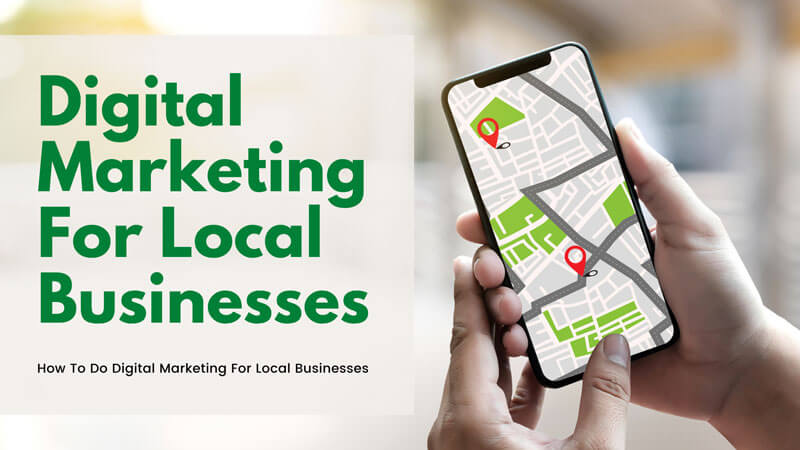
What Are The Advantages Of Online Marketing For Small Businesses and Startups?
There are many advantages to marketing your small business online.
The internet is the best way for you to reach a large number of people who may be outside your area or state and have never heard about you before.
Some of the advantages of using online marketing for your small business and startup includes:
- It is easy to get started and generally inexpensive to run
- It can be done on a small budget of only a few hundred dollars per month
- It offers massive returns for Return On Investment (ROI) with online marketing media such as Pay-Per-Click (PPC) campaigns, Search Engine Optimization (SEO), and Email Marketing leading the pack with ROI of up to 44:1! That’s an average return of $44 for every $1 of marketing budget.
- You can distribute marketing content to a global audience
- Your message is seen by potential customers 24/hours a day, 365 days per year
- With online marketing for small businesses and startups you have the ability to track your ROI (return on investment) quite easily with just the touch of a button.
- You also don’t need any physical inventory to get started
- In addition, it’s easy for people to find reviews about your site or product which builds trust with them. Online marketing means that anyone who wants more information about what you are doing has access at anytime of the day- especially those looking for something new!
- It will help increase customer retention rates as well because when they reach out again later on, they’ll be back with an already established relationship from past experience.
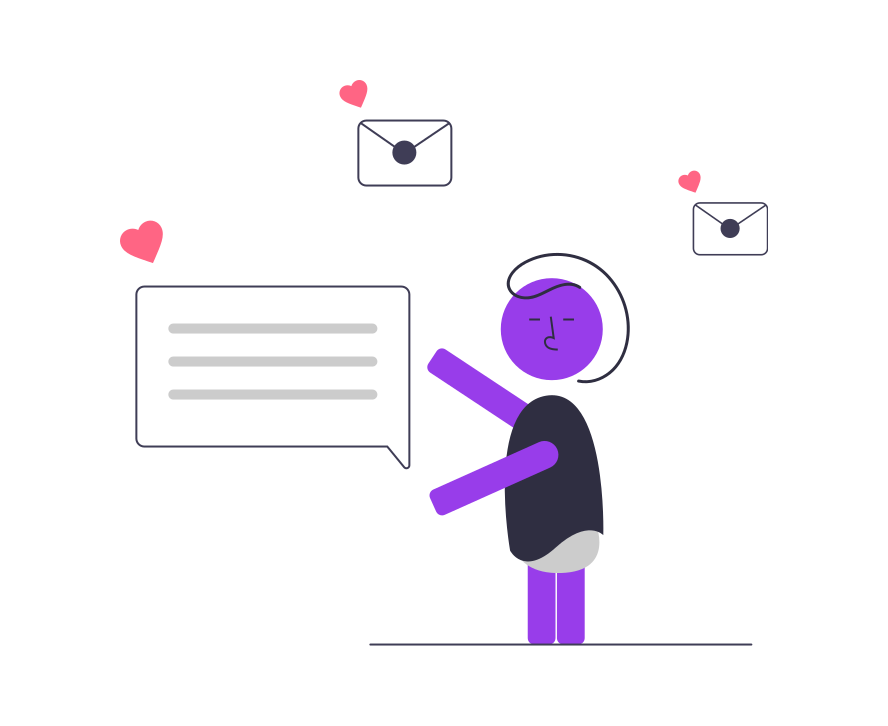
Disadvantages Of Online Marketing For Small Businesses
Even though online marketing might seem like the winner at this stage for the answer to the best way to market a small business and startup we wouldn’t be entirely honest with you if we didn’t tell you that it came with it’s fair share of drawbacks.
Some of the disadvantages of online marketing include:
- It requires a fair bit of knowledge to get started effectively and not waste your money
- A small business owner might not have the time or resources to invest in online marketing.
- Marketing a small business through social media requires an investment of both money and time, which is something many new entrepreneurs don’t have access to.
- It can be difficult to find customers if you don’t understand the different online marketing platforms and their best applications for marketing your small business
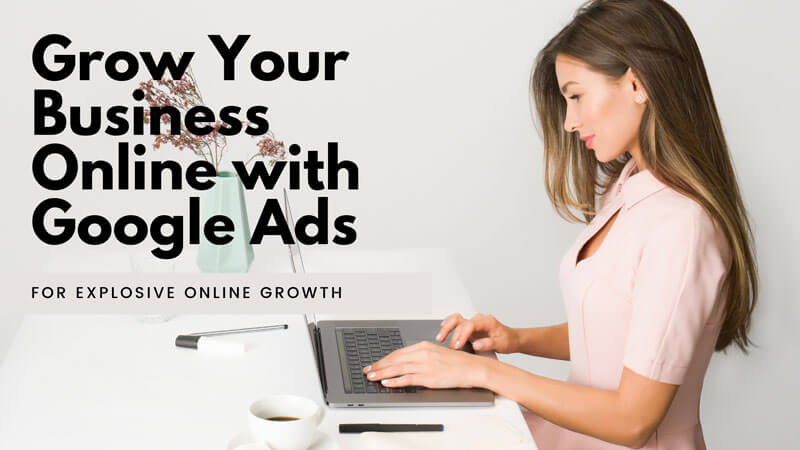
Online Marketing Strategies For Small Businesses
There are many online marketing strategies for small businesses and startups that can help your business start generating leads, clients and sales today.
Some of these include:
- Social Media Marketing: Social Media Marketing is using social media platforms like Instagram, Twitter, Facebook, etc to market your business online by running ads, building an audience, and sharing your story through these means.
Social media marketing is particularly helpful for businesses who are interested in connecting with a younger audience since most users of social media tend to be below the age of 35. - Search Engine Optimization (SEO): This is the process of optimizing your website so that it ranks higher on search engine results pages (SERPS). SEO’s main goal is to help potential customers find you when they are searching for products or services like yours.
- Content Marketing: Content marketing is using content such as blog posts and videos on social media platforms to market your company or product.
This type of marketing has been shown to be effective since people typically consume more than one form of content every day – which means if something you need to build a strong relationship with your audience and benefit from in the long run then content marketing is the right solution for your business. - Search Engine Marketing (SEM): Search Engine Marketing is a form of online marketing that allows small businesses and startups to take advantage of the Google Ads program by running ads on Google’s search pages, which in turn helps boost your ranking for certain keywords.
Most people go with this option because it tends to be more cost-effective than other forms of online advertising while also being able to reach a wide audience; however, it does require some knowledge about conversion rate optimization techniques.
This means you need someone who knows what they’re doing when trying out SEO or SEM, so make sure whoever manages these things has extensive experience if you want them done right. - Pay-Per-Click Campaigns (PPC): This is a form of online marketing that also requires you to use your credit card.
However, the difference between this and SEO is fairly significant. The pay will vary depending on what keyword phrase you’re wanting to rank for.
It can be very expensive if not set up correctly from the start; however, it’s better than relying on other people – such as social media influencers or blog writers – who may not have any interest in your company because they’ll make money no matter what.
The main advantage with PPC campaigns is that there’s less work involved because all someone needs to do is input their budget into Google Ads and then let the system handle everything else.
If done properly, these ads can have a massive ROI that can grow your business overnight. - Email Marketing: Email marketing is often underrated by small businesses.
Email marketing allows you to create a list of people who are interested in your product or service and then send them updates through email campaigns when there’s something new that they might be interested in.
The best part about this type of marketing is that it doesn’t require any money upfront: all someone needs to do is set up the campaign with an email provider like Mailchimp, Constant Contact, Active Campaign, or AWeber (or find another one if these don’t work) so they can start sending their emails right away without having to worry about other costs.
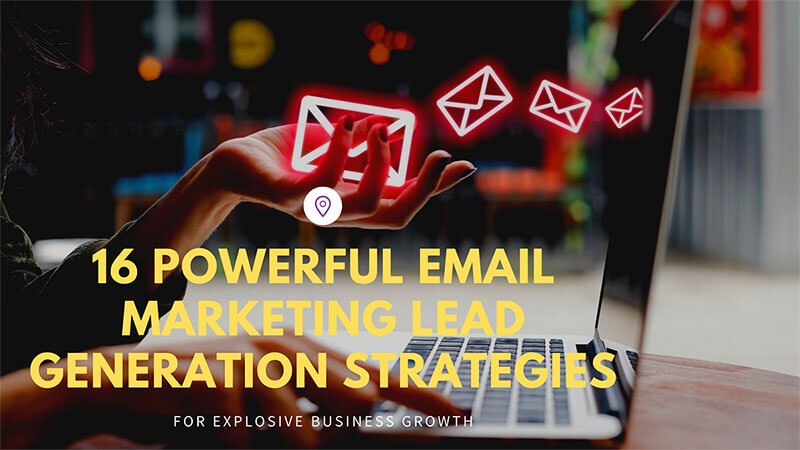
Is Online Or Offline Marketing Right For Your Small Business or Startup?
As we’ve seen in this article the question of “Is it better to market my small business or startup online or offline?” cannot be easily answered but we hope that you learned enough from this post to help you make an informed decision.
After you’ve educated yourself on the different types of online and offline marketing strategies, and you’ve answered the 16 questions listed above you will be able to better decide which is best for your business.
As a small business owner, there are many marketing strategies you can choose from.
You may decide that online marketing is the best route for your company and this will be determined by what services you offer or products you sell.
It’s important to note that offline marketing is still very much alive and well so if it feels like online marketing would not suit your needs then don’t worry; we’ll talk about some of those options too!
Online marketing has become increasingly popular in recent years due to how accessible the internet makes information.
With sites such as Facebook, Twitter, Instagram (to name just a few) it becomes easier than ever before to reach consumers on a large scale which opens up opportunities for businesses of all sizes.
Offline marketing still has a role to play and still plays it quiet effectively as well.
With offline marketing, you have a much larger chance of getting your message across.
This is because with online marketing only the people who are looking at the screen will see it while everything else is hidden behind ads and other messages vying for attention.
With offline marketing, however, all in-person interactions can be potentially used to market your business without too many distractions or caveats if done properly.
Bonus Section – Master Email Marketing With These Free Resources
We have prepared a list of helpful resources to help you master email marketing today.
We want to help you on your journey to online success and so we have decided to link below some helpful articles and guides to help you on your email marketing journey. Feel free to use them to as much as possible.
Alternatively, if you don’t want to do all the heavy lifting you can get a free consultation from our team and we will help you on your journey to success.
Additionally, you can sign up for a Cyber Site Online Presence for as low as $1,200 per month. You will get a website that grows your business that is built with a 12-month marketing strategy for your business. It will be fully managed and marketed by our team.
You can get your Cyber Site Online Presence here.
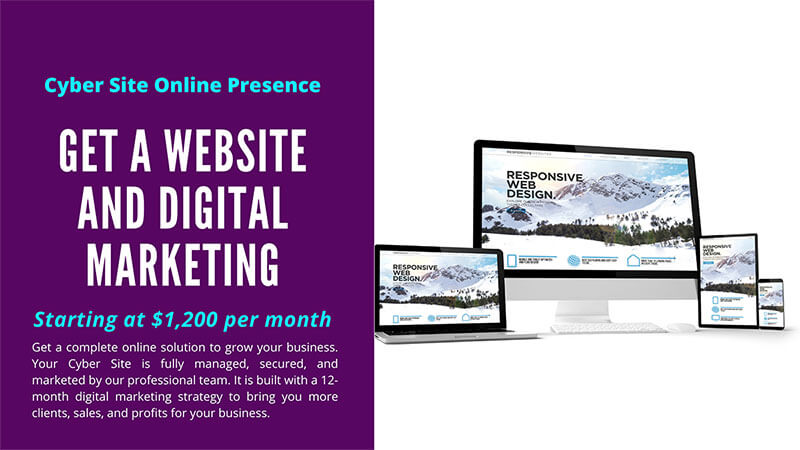
Here is a list of those extra resources we mentioned
- Email Marketing Benefits: 22 Powerful Email Marketing Benefits To Grow Your Business
- Email Marketing Conversion Tips: Email Marketing to Grow Your Business: 15 Powerful Conversion Tips
- Email Marketing Lead Generation: 16 Powerful Email Marketing Lead Generation Strategies
- Digital Marketing Strategy: 1 Powerful Digital Marketing Strategy for Small Businesses and Startups
- Nurture Campaigns: Drip Campaign and Nurture Campaign: The Differences in Email Marketing
- Drip Campaigns: 3 Effective Sign-up Drip Campaigns for Effective Email Marketing Conversions
- Website Conversion Optimization: 10 Worst Reasons Your Website Isn’t Converting
- Lead Generation Complete Guide: Lead Generation Complete Guide: From Basic To 5 Powerful Strategies
- Is Email Marketing Dead? Is Email Marketing Dead In 2021?
- Email Marketing Tips For Dentists: 10 Helpful Email Marketing Tips For Dentists: Get Explosive Growth For Your Dental Practice
We hope you find these articles helpful on you journey to online success.
Conclusion – Powerful Marketing Tips For Small Businesses In 2021: How To Get Explosive Growth
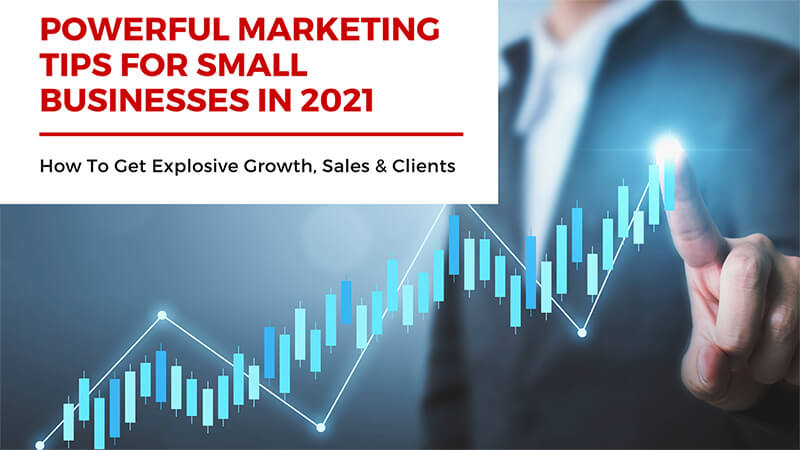
There are many reasons to use online marketing versus offline marketing in your small business or startup.
In this article we have tried to give you as much information as possible to help you decide for your unique business model, industry, location, target audience, and budget what is the best marketing solution for your business.
We imagine that you might not have the time and energy to learn all the ins and outs to decide which is best for you and would prefer to leave it in the hands of trustworthy and competent marketers who can help your business.

